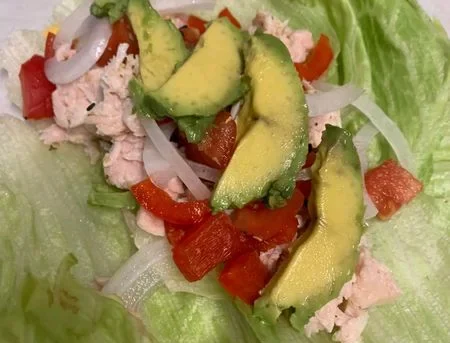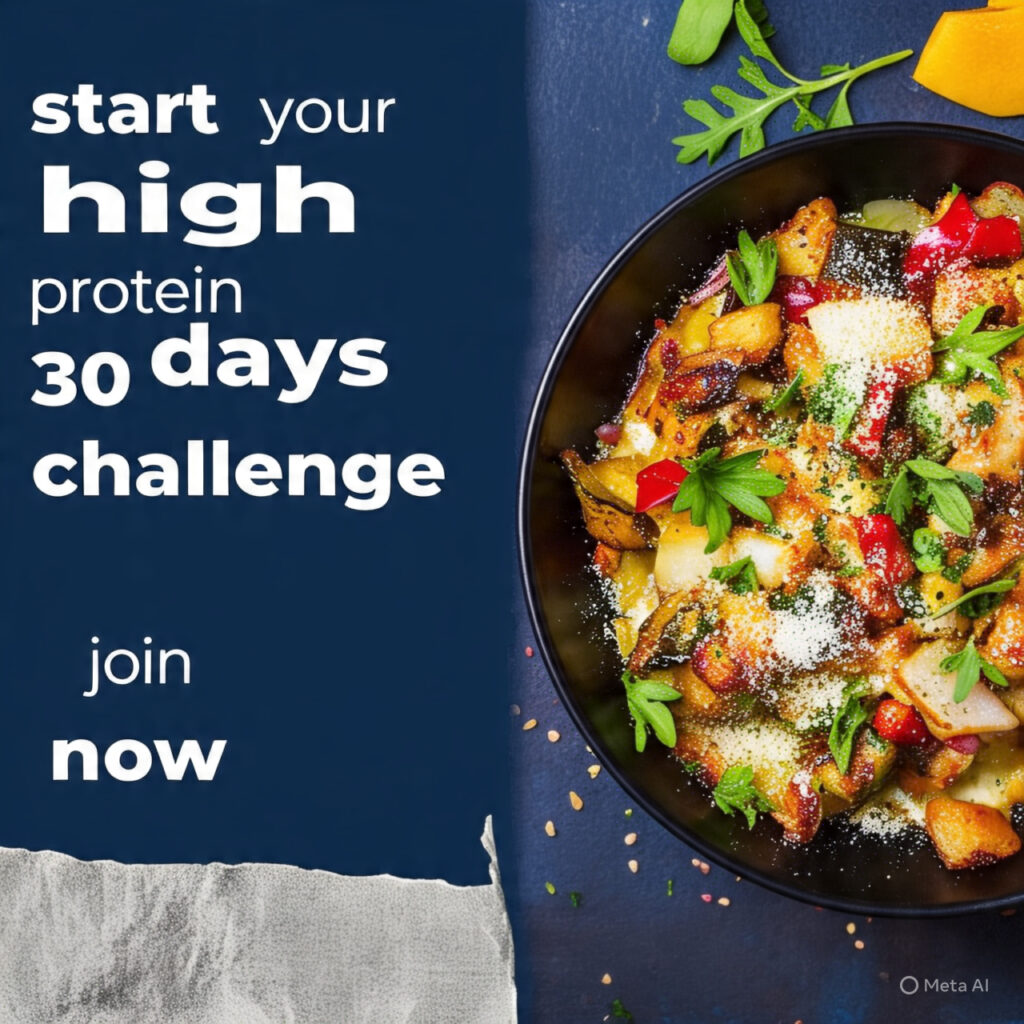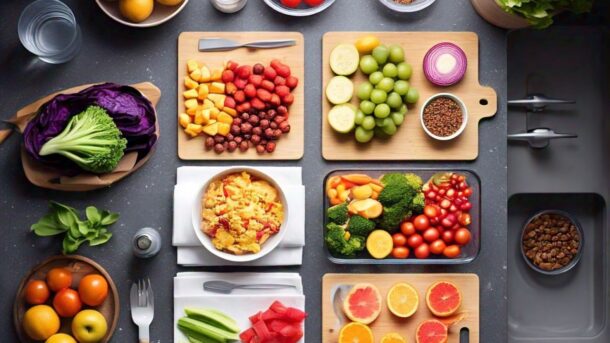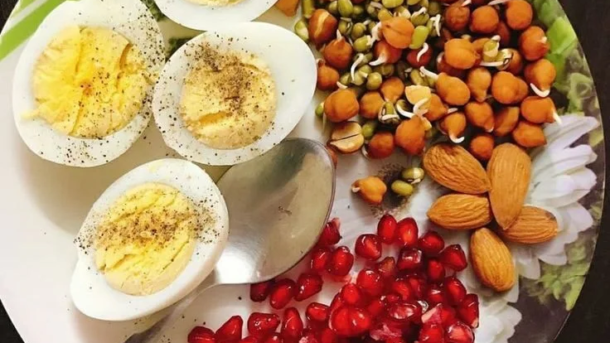🥩 The Ultimate High-Protein Meal Plan for Busy People
Backed by Science. Designed for Real Life. Built to Transform Your Body.
Let’s get honest for a second.
Trying to lose weight while juggling work, home, kids, stress, and zero time for meal prep? It’s exhausting. You start the week with good intentions—maybe a salad, a smoothie, a walk around the block—but by Thursday, you’re drained, starving, and standing in front of the fridge wondering why your results haven’t caught up to your effort.
If you’ve ever felt like you’re doing everything right and still not seeing progress—you’re not alone.
But you’re also not stuck.
Because sometimes, all it takes is one smart shift. And for thousands of women and men around the world, that shift is protein.

🧠 The One Macronutrient That Changes Everything: PROTEIN
Protein is more than just a fitness buzzword or something gym bros talk about. It’s a metabolic powerhouse. When your meals are built around protein, you:
✅ Feel fuller for longer
✅ Curb cravings without relying on willpower
✅ Burn more calories (yes, literally—thanks to the Thermic Effect of Food)
✅ Build lean muscle while losing fat
✅ Prevent the dreaded yo-yo weight regain
✅ Boost your energy and mental clarity
And the best part? You don’t have to give up real food.
No bland chicken. No depressing meal prep Sundays. No sad Tupperware meals.
This high-protein plan is designed to work for you, not the other way around.
🧪 The Science Behind the Magic
Research has consistently shown that high-protein diets lead to:
- More fat loss while preserving muscle mass
- Reduced appetite and spontaneous calorie intake
- Better metabolic function and blood sugar control
- Enhanced workout recovery and muscle tone
But new studies are taking this even further. A 2024 study by Orford University introduced a revolutionary approach: remove the need to obsessively track every bite, and focus instead on protein-forward, intuitive meals.
Here’s what happened:
📉 Participants lost an average of 7.9% of body weight in just 6 months.
🎯 Over 60% dropped at least 5%, which is considered a huge win for metabolic health.
🔥 More than 30% lost 10% or more, a transformation level usually seen in intense programs.
This research is game-changing because it proves that simplicity and structure—not restriction and obsession—are the future of healthy eating.
🌍 Real-Life Role Models: Celebrities Who Swear by High-Protein Eating
You’re not the only one who’s tired of complicated diets. Even your favorite celebs are opting for high-protein meal plans that fit their real life.
Jennifer Garner
The ever-youthful actress and mom of three relies on protein-packed meals like turkey burritos, chicken bowls, and egg bites to keep her energy up while juggling Hollywood life and motherhood. She focuses on meals that are enjoyable, not restrictive.
Cody Rigsby
Peloton’s most iconic instructor credits protein as the foundation of his diet. Whether it’s grilled steak, egg whites, or protein smoothies, he emphasizes planning meals around protein first to reduce temptation and stay strong.
Tiffani Thiessen
At 51, Tiffani blends fitness with fun. She’s swapped dieting for living well—which includes protein-rich meals, stress-free eating, and active hobbies like hiking. She openly discusses the importance of mental wellness along with physical nutrition.

📊 How Much Protein Do You Need?
Your needs depend on your body size, activity level, and goals. But here’s a general guide:
- Sedentary adults: 0.8g of protein per kg of body weight (around 0.36g per pound)
- Active adults: 1.2–2.0g per kg (0.54–0.9g per pound)
- Post-workout: Aim for 20–25g of protein within 30–45 minutes after training
⚠️ Important: Your body can only utilize about 20–40g of protein per meal for muscle synthesis. That means spreading it out across the day is key.
So, instead of eating a giant steak at dinner and nothing all day—aim for 25g at breakfast, 30g at lunch, 20g in a snack, and 25g at dinner.
🍴 What to Eat: High-Protein Foods That Taste Amazing
Here’s a powerful, go-to list of protein-rich foods to keep stocked in your kitchen:
🥩 Lean Meats
- Chicken breast (100g) – 22.5g of protein
- Turkey breast (85g) – 25.6g
- Ground beef (90% lean, 100g) – 26g
🐟 Fish & Seafood
- Salmon fillet (178g) – 39.3g protein + omega-3s
- Tuna (canned, 107g) – 20.3g and shelf-stable convenience
🧀 Dairy & Eggs
- Greek yogurt (100g) – 10g
- Cottage cheese (100g) – 11g
- Eggs (1 large) – 6g
- Cheese sticks (1 serving) – 6–7g
🥦 Plant-Based Proteins
- Lentils (1 cup cooked) – 18g
- Quinoa (1 cup) – 8g
- Tofu (100g) – 10g
- Tempeh (100g) – 19g
- Edamame (1 cup) – 17g
🥤 Protein Supplements
- Whey or plant protein powder (1 scoop) – 20–30g
- Collagen peptides – 10–15g + skin, joint, and gut benefits

📅 How to Follow a High-Protein Plan (Without the Stress)
Here’s how to make it stick:
- Plan, Don’t Wing It
Start your week with a meal plan focused on protein. Make sure each meal hits 20–30g. - Shop Smart
Stock your fridge with versatile, protein-rich staples like eggs, canned tuna, rotisserie chicken, Greek yogurt, and protein wraps. - Cook in Batches
Make a big batch of protein-rich chili, stir-fry, or grilled chicken you can reuse in multiple meals. - Pack Protein Snacks
Always have something on hand—beef jerky, cottage cheese cups, boiled eggs, or a protein bar in your bag. - Listen to Your Body
Protein helps stabilize blood sugar and energy. If you feel tired or hungry after a meal—it probably wasn’t protein-packed enough. - Stay Hydrated
Protein metabolism needs water. Aim for 8–10 glasses daily, especially if you’re increasing intake. - Try Something New
Did you know insect protein is emerging as a sustainable, complete protein source? Yep—it’s packed with nutrients and great for the planet!
🧾 What’s Inside the 7-Day High-Protein Plan?
Here’s a sneak peek of what a week looks like:
🌞 Breakfasts
- Protein Banana Pancakes (30g)
- Cottage Cheese Berry Bowls
- Egg Muffins with Spinach & Turkey
🥗 Lunches
- Chicken Power Bowls with Avocado
- Greek Yogurt Tuna Salad Wraps
- Lentil & Quinoa Protein Soups
🍽️ Dinners
- Creamy High-Protein Alfredo with Chicken
- Baked Salmon with Garlic Green Beans
- Protein-Packed Tacos with Ground Turkey
🍫 Snacks & Treats
- Protein Brownies
- Hard-Boiled Eggs
- Cottage Cheese Ice Cream
- Chocolate Protein Bark with Almonds

🌟 Final Thoughts: Your Simpler, Stronger, Happier Life Starts Now
You don’t need to overhaul your entire life. You don’t need to go keto, vegan, paleo, or eat bland food all day.
You just need to start eating smarter—and protein makes that easier than ever.
More energy. Better results. Fewer cravings. Less stress.
So if you’re ready to try something that’s actually doable, designed for busy people, and backed by real science…
👇 Comment “PROTEIN PLAN” below and I’ll send you the full 7-day guide!
Let’s make eating well feel easy. You deserve this. 💪🔥











